A report on global mobile app markets notes that Apple's iOS App Store remains the world's largest by revenues and is predicted to hold onto its crown as "the most lucrative" through 2021, although all of the world's competing Android software markets combined are expected to exceed the App Store in total revenues at some point later this year.
Apple's App Store profit lead keeps growing
The report, by App Annie, looks at total revenues (split by the store and its developers), as well as initial downloads of apps. It does not appear capable of tracking first party apps or subscriptions, which would include revenues from titles such as Apple Music, Keynote and Garage Band, nor does it appear to count downloads of bundled apps such as iOS Maps, News and Wallet. Many Android phones do need to download compatible titles on that platform, although these do not count toward much, if any, revenue.
In January 2016, App Annie reported figures for 2015, noting that despite a large jump in Android app downloads from Google Play fueled by the company's expansion into developing markets, Apple's iOS App Store continued to bring in more money and actually increased its lead in profitability over Android's official store.
By the beginning of 2016, iOS was reportedly earning 75 percent more than Google Play— an increase over Apple's 2014 lead of 70 percent greater trackable revenues than Google Play.
While downloads in Google Play were growing, App Annie reported that its "revenue lags," and warned that "Android market share needs to grow at the high end of the smartphone market to meaningfully drive more revenue share."Despite serving twice the trackable downloads of the App Store, Google Play had only half the revenues of Apple
At the time, Apple's downloads were also growing: 20 percent in the U.S., 30 percent in Japan and fully doubling in China.
By July, App Annie was reporting that despite serving twice the trackable downloads of the App Store, Google Play had only half the revenues of Apple.
In particular, Apple was reported to be seeing a huge jump in revenues related to streaming music (Spotify and Apple Music) and entertainment (Netflix and HBO Now), while Google wasn't benefitting nearly as much from growth in those areas.
The Death of Apps Lie of 2016
Around the same time, a media narrative began to unfold that apps no longer mattered and that users didn't care about software anymore. The new thing was supposed to be AI chat bots.
Peter Kafka gravely warned via Recode that "the app boom is over" as total U.S. app downloads reportedly declined year over year by 20 percent. Dan Frommer had earlier written for Quartz that most users weren't downloading any apps at all, on average each month, based on data from comScore.
Something wasn't true. During Apple's "very bad / second best quarter in history" that ended last March, the company's Services revenue grew by 20 percent, making it nearly a $6 billion business quarterly. That Services growth was specifically detailed in Apple's 10Q as being "due primarily to higher App Store, licensing and AppleCare sales."
Nevermind the pundits, apps are actually growing rapidly
Not even a year later, App Annie is now predicting massive growth in App Store downloads and revenues over the next four years. Rather than apps being dead— as various pundits have been grousing about since 2014— the site says that growth is picking up and will occur even faster than the group earlier predicted just last summer.
In the same report from July referenced above, App Annie pointed to a 20 percent CAGR (compound annual growth rate), calling for $102 billion in worldwide gross revenues from mobile apps by 2021.
The group now calls for a 25 percent CAGR in global mobile app revenues, assisted by App Store subscriptions, leading to total revenues of $139 billion in 2021. Games are predicted to account for $105.2 billion, while other apps are expected to amount to $33.8 billion in revenues.
Google Play and other Android app markets are expected to far outpace Apple in the number of apps downloaded (above). The group says Apple distributed 29 billion app downloads in 2016 and predicts that number will grow to 42 billion by 2021. However, Google Play users reportedly downloaded 63 billion apps last year and are predicted to reach 196 billion by 2021, while other Android app markets are expected to grow from last year's 55 billion to 112 in five years. Apple's App Store will remain the world's largest mobile software market
In terms of direct, app-related revenues, however, Apple's App Store will remain the world's largest mobile software market. App Annie reported $34 billion in revenues for 2016 growing to $60 billion in 2021, while Google Play is expected to grow from 2016's $17 billion to $42 billion in five years, while other Android stores grow from $10 billion to $36 billion.
Add Google Play together with all the stores in China and other markets that compete against it, and you have a number larger than Apple's App Store revenues. Adding Chinese Android stores to Google Play is important because much of that growth is expected to come from China, where Google does little business on its own. Conversely, Chinese app stores do very little business in the West. Only Apple earns massive revenues in both of the world's largest mobile markets.
Developers make most of their money on the App Store, too
Beyond revenue, Apple also earns greater profits from the App Store because its demographic of users are far more willing and likely to pay for software.
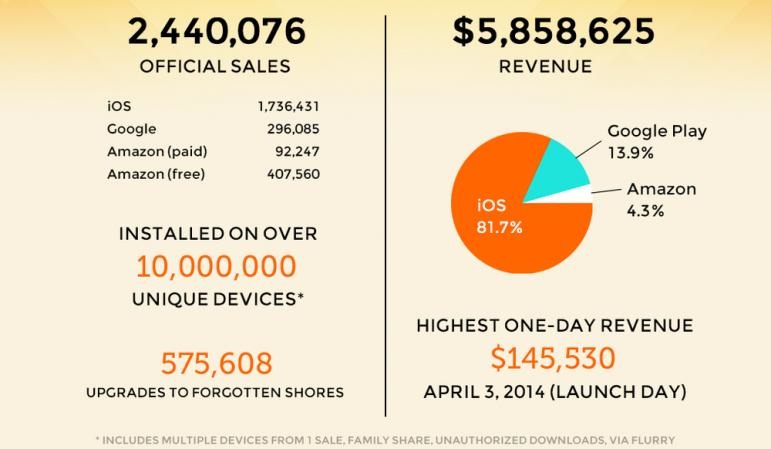 Source: International Business Times
Source: International Business TimesLast year, Ustwo Games reported 40 percent of its iOS users paid to install its award-winning title "Monument Valley," while only 5 percent of Android users paid. The rest were largely downloading pirated copies.
Of the 2.4 million sales of the game, 1.7 million were on iOS while less than 0.3 occurred on Google Play. Over 80 percent of the developer's revenue came from iOS users. Those statistics play a major role in why gaming, productivity apps and other mobile software tools are commonly built exclusively for iOS or are released on iOS first, and are commonly brought to Android only later in a version with ads.
One notable departure is Apple Music, which offers an ad-free version of its subscription-based service as an Android app.
 Daniel Eran Dilger
Daniel Eran Dilger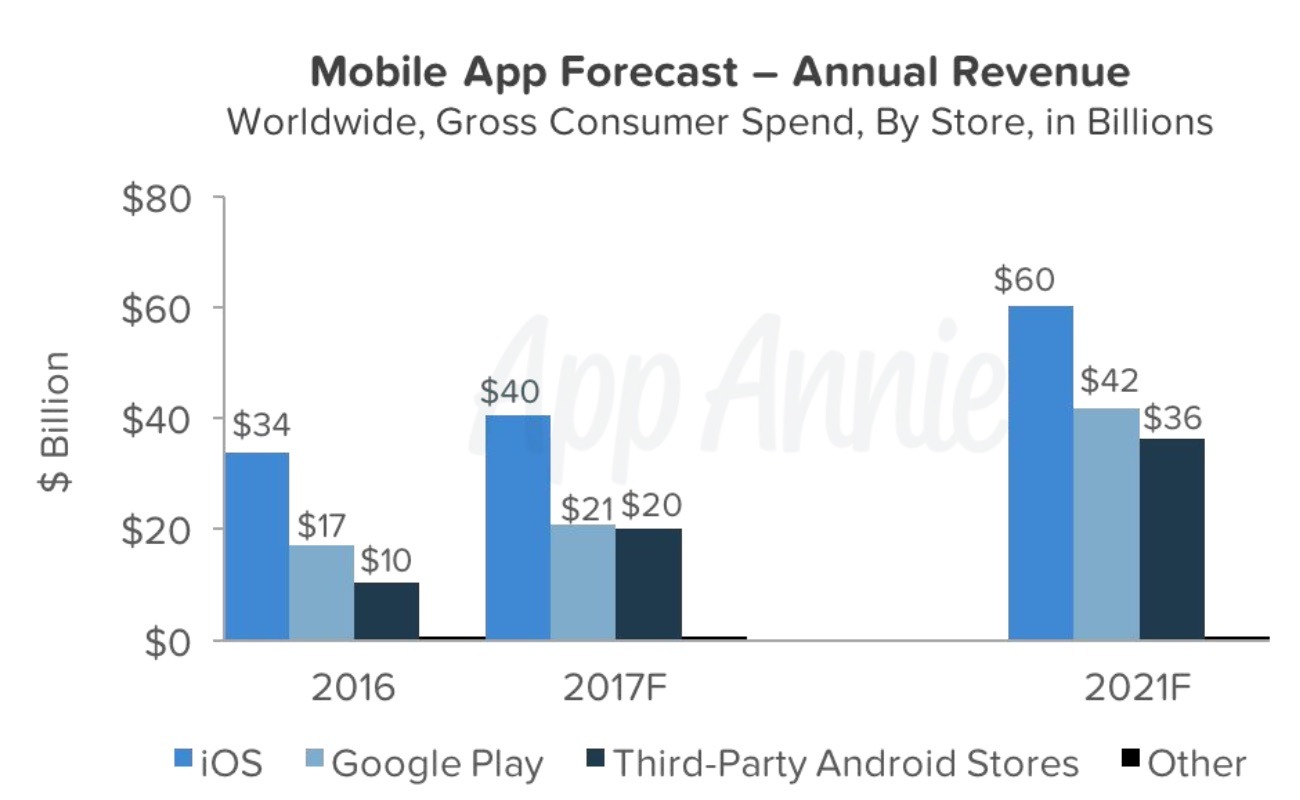
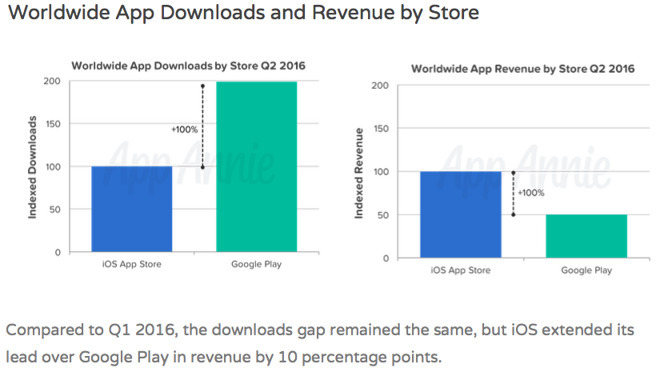







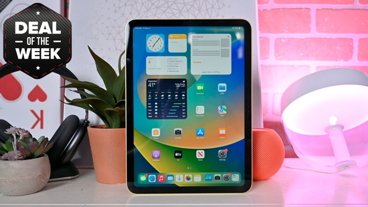
-m.jpg)






 Andrew O'Hara
Andrew O'Hara

 Christine McKee
Christine McKee
 Charles Martin
Charles Martin
 Wesley Hilliard
Wesley Hilliard
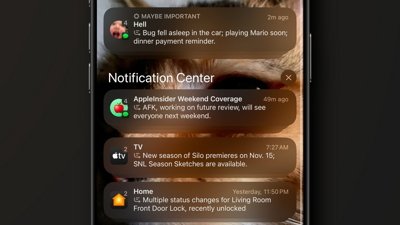
 Malcolm Owen
Malcolm Owen
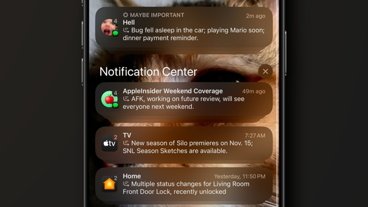









24 Comments
Honestly... someone needs to call these clowns out for what is basically flat-out lying. Gone of the days of journalism based on facts and hard data.
LOL. This was my first reaction to the headline.
The headline...
Every big countries are sending their droids to destroy a puny island of Apple which has 60% of the world economy...
Ah Daniel you're forgetting the increasing market in hijacking and selling private information on Droid phones. Surely that has to count for something.